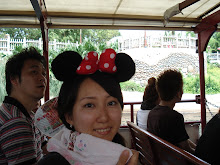I found Table 12.2: Rules to increase Cooperation between Collectivists and Individualists on page 354 extremely interesting. At first, I wasn’t sure if cultures can be simply divided by two sides: individualism and collectivism. However, after examining characteristics of these two terms, I thought they are very true. For example, Table 12.2 states that when interacting with collectivists, “Feel free…to disclose your age and salary.” In Japan, knowing others’ age is so important that people never keep their age unknown after they meet. They ask either the person directly or others afterwards so they can behave appropriately to the person. They also feel safe knowing others ages because age is a big clue to define one’s identity.
When I worked at an office in the U.S., nobody asked my age on the day I started, but everyone was behaving each other equally and friendly. Human characteristics were more important than ages. I could relax more because I didn’t need to worry about ages and using different words for older people.
Interesting thing is that most friends I made in the U.S. were different ages from mine, including Japanese friends I made in the U.S. However, my friends in Japan are all the same age with me. There are a younger worker and an older worker that I want to be friends at my work, but since they are in different age groups, I feel an invisible wall between us. I think we will feel awkward if we became friends. It seems seeing one as a belonging of a certain age group makes people difficult to get close in collective cultures.
I learned in a different class that when we wake up in a morning, we first process our identity as a human, and then we process if we are a man or a woman. In Japan, I think age comes up before a man or a woman. I am now 23, and 90 percent of the time, my same age girl friends talk about when they want to get married, their plans for marriage, or who got married. I got bored for the marriage topic because marriage is not my prior concern now. I realized that in a collective culture, being a certain age is so critical and different from being any other ages because of particular expectations for that age.
Final Post
16 年前

0 件のコメント:
コメントを投稿